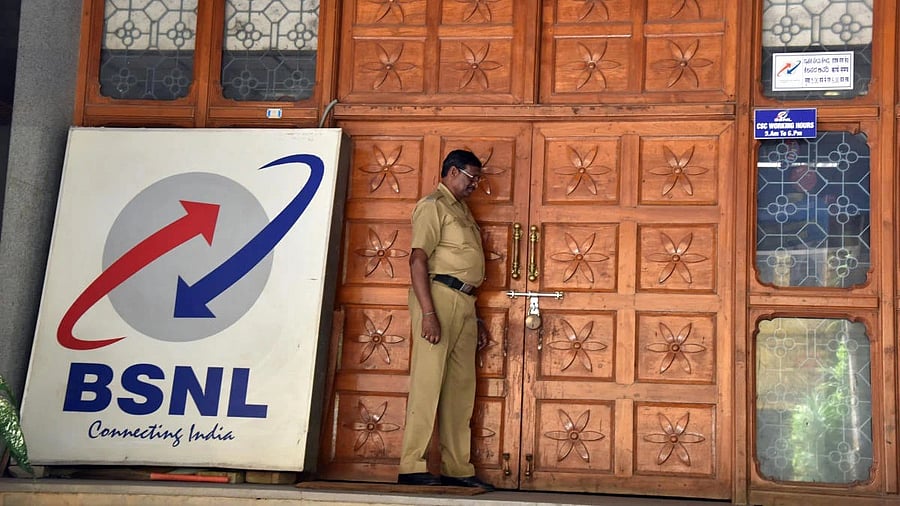
The CAG loss estimates included Rs 80.64 in the form of 'wasteful expenditure on idling of higher size PIJF cables in BSNL'.
Credit: DH File Photo
New Delhi: The Comptroller and Auditor General (CAG) of India estimates on losses to BSNL from Reliance Jio Infocomm were based on the misinterpretation of a clause on add-on technology, and it has been rectified in a transparent and equitable manner, Parliament was informed on Wednesday.
The CAG report tabled in Parliament in April had said the government suffered a loss of Rs 1,757.56 crore as state-owned telecom firm BSNL failed to bill Reliance Jio for 10 years since May 2014 as per their agreement on passive infrastructure sharing.
"BSNL has Master Service Agreements (MSAs) with M/s RJIL, for leasing of BSNL's tower infrastructure to install their equipment. There is no revenue loss to BSNL and the government. The estimate of CAG was based on the misinterpretation of the clause of add-on technology, which has now been rectified in a transparent and equitable manner. BSNL has since raised the revised invoices from RJIL," Minister of State for Telecom Pemmasani Chandra Sekhar said in a written reply to the Lok Sabha.
The CAG loss estimates included Rs 80.64 in the form of "wasteful expenditure on idling of higher size PIJF cables in BSNL".
Pemmasani said the procurement of the PIJF underground cables was as per then extant norms.
"However, due to a changed competitive scenario in the telecom sector, the procured cable could not be fully utilised. The surplus cable has been monetised by BSNL to the tune of Rs 70.32 crore and the remaining cable has a sale value of approximately Rs 23 crore," the minister said.
On measures taken by the government to fix accountability, recover losses and prevent recurrence of such lapses in the functioning of BSNL, Pemmasani said actions such as resolving the ambiguity in agreement clauses, monetisation of surplus inventory, issuance of revised demands and recovery have been taken.
"Further, PSUs have been advised to timely process bills and be extra cautious while taking policy/business decisions," he said.